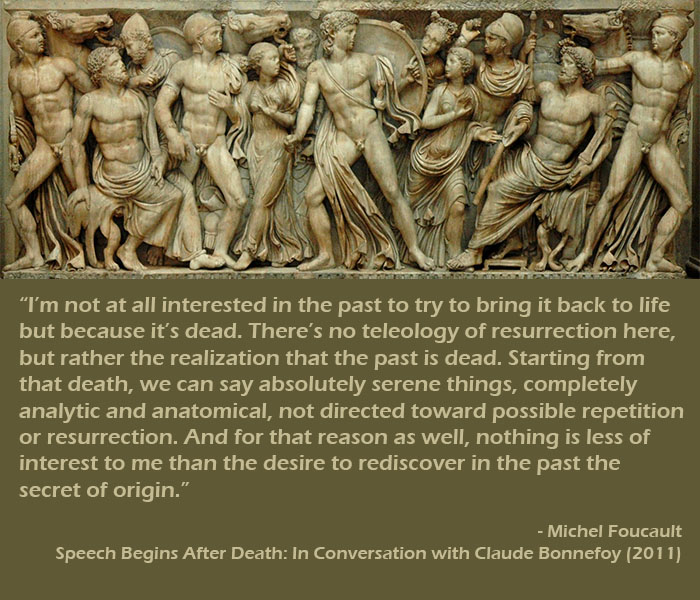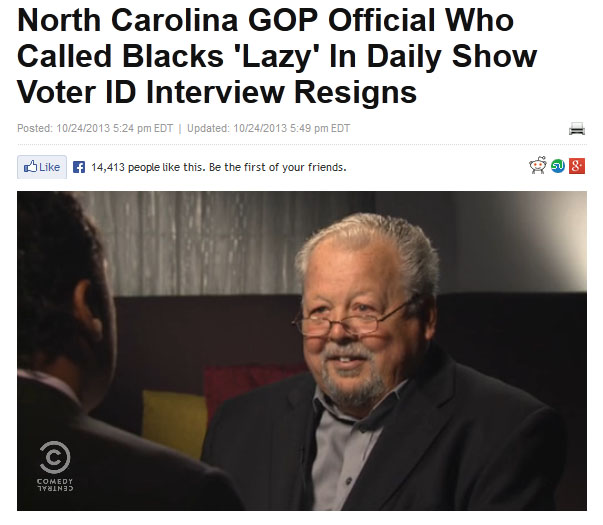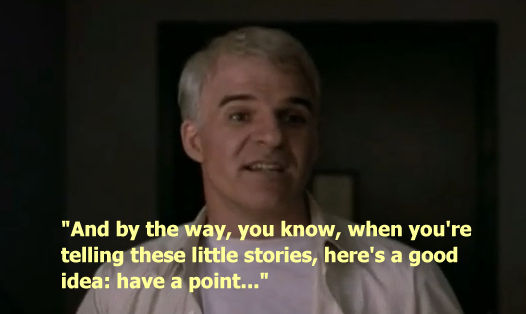 Learn more.
Learn more.
Oh, the Humanity…
 As I tried to suggest in a post last week, concern over dehumanizing the people we study has long struck me as a pseudo-problem, i.e., a problem of scholars’ own making, inasmuch as I think that we worry about this only for those with whom we already agree, with whom we already share some affinity. In a word, the fact of the concern is an example of our own identification practice/interests up and running. For all others, we, as scholars, are likely in tacit agreement that we are not trying to convey or conserve their self-perceived meanings or some ethereal quality that they apparently share with us but, instead, trying to figure out how in the world they could even think or act in the way that they do (i.e., in such cases the people we study are a puzzle to be solved and not a pristine human value to be protected from the prying eyes of outsiders), given that their actions or beliefs are so patently odd or curious or wrong or unethical or illegal or immoral.
As I tried to suggest in a post last week, concern over dehumanizing the people we study has long struck me as a pseudo-problem, i.e., a problem of scholars’ own making, inasmuch as I think that we worry about this only for those with whom we already agree, with whom we already share some affinity. In a word, the fact of the concern is an example of our own identification practice/interests up and running. For all others, we, as scholars, are likely in tacit agreement that we are not trying to convey or conserve their self-perceived meanings or some ethereal quality that they apparently share with us but, instead, trying to figure out how in the world they could even think or act in the way that they do (i.e., in such cases the people we study are a puzzle to be solved and not a pristine human value to be protected from the prying eyes of outsiders), given that their actions or beliefs are so patently odd or curious or wrong or unethical or illegal or immoral.
To us, that is…. Continue reading “Oh, the Humanity…”
Erased
 There’s been a series of commentaries online recently on the topic of using the term “data” when naming the (what shall we call “it”?) …, stuff that we, as scholars, study — commentaries driven by worries, in many cases, that this word erases the inherent worth and humanity of the people so named. The members of Culture on the Edge tackled this topic both here and here, all in favor of an informed/specific use of this technical term, and a more diverse group of responses also appeared at the Bulletin blog (here and then also here). Continue reading “Erased”
There’s been a series of commentaries online recently on the topic of using the term “data” when naming the (what shall we call “it”?) …, stuff that we, as scholars, study — commentaries driven by worries, in many cases, that this word erases the inherent worth and humanity of the people so named. The members of Culture on the Edge tackled this topic both here and here, all in favor of an informed/specific use of this technical term, and a more diverse group of responses also appeared at the Bulletin blog (here and then also here). Continue reading “Erased”
Using Four-Lettered Words: Part Two

“What Justice Kennedy has undertaken in this initial statement of fact, or more properly, of data, that is to say, facts accepted for purposes of the argument…”
– Jonathan Z. Smith, “God Save This Honourable Court” (Relating Religion, p. 382)
While she was on our campus a few weeks ago, I noticed Monica Miller using the word “data” to refer to the things that she studied — things such as African American religion, scholars of African American religion, rap lyrics, and rap artists — and so I asked her a question or two about what she thought was entailed in that word and why she seemingly opted for it rather purposefully in both her public lecture, the evening before, and then during an informal lunchtime discussion with our students the next day. And then, just the other day, Leslie Smith posted on this site, using this four-lettered word in her post’s title — a use that did not go unnoticed by some on Facebook who soon were debating what was termed the dehumanizing effects of such objectifying terminology. (And now the Bulletin‘s blog has entered the debate as well.) Continue reading “Using Four-Lettered Words: Part Two”
Using Four-Lettered Words: Part One

“What Justice Kennedy has undertaken in this initial statement of fact, or more properly, of data, that is to say, facts accepted for purposes of the argument…”
– Jonathan Z. Smith, “God Save This Honourable Court” (Relating Religion, p. 382)
While she was on our campus a few weeks ago, I noticed Monica Miller using the word “data” to refer to the things that she studied — things such as African American religion, scholars of African American religion, rap lyrics, and rap artists — and so I asked her a question or two about what she thought was entailed in that word and why she seemingly opted for it rather purposefully in both her public lecture, the evening before, and then during an informal lunchtime discussion with our students the next day. And then, just the other day, Leslie Smith posted on this site, using this four-lettered word in her post’s title — a use that did not go unnoticed by some on Facebook who soon were debating what was termed the dehumanizing effects of such objectifying terminology. Continue reading “Using Four-Lettered Words: Part One”
What’s the Point?
 I was watching a rerun of a show on television the other night, about emotions in animals, when one of the scientists interviewed talked about how a variety of solitary observations can build up to a considerable body of observational data — “the plural of anecdote is data” he said. It’s a line, I later realized, that has been attributed to, among others, Raymond Wolfinger, a retired political scientist professor at Berkeley (see more here). Continue reading “What’s the Point?”
I was watching a rerun of a show on television the other night, about emotions in animals, when one of the scientists interviewed talked about how a variety of solitary observations can build up to a considerable body of observational data — “the plural of anecdote is data” he said. It’s a line, I later realized, that has been attributed to, among others, Raymond Wolfinger, a retired political scientist professor at Berkeley (see more here). Continue reading “What’s the Point?”
